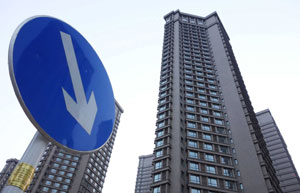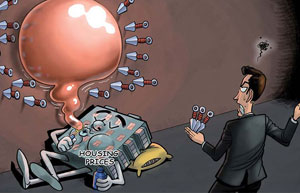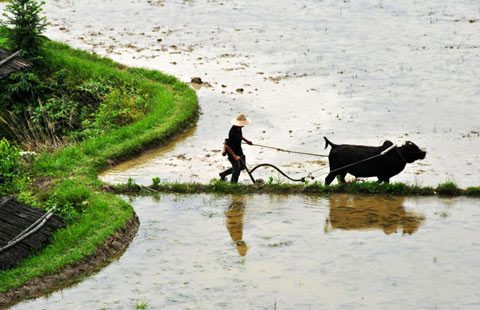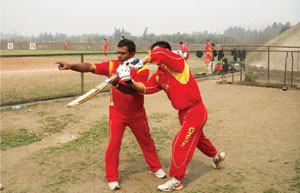Worries reasonable, housing price tumble unlikely
(Xinhua) Updated: 2014-05-07 10:41Conflict of interests
The high-flying housing prices also reveal the uncomfortable fact that local governments' interests have become so entwined with real estate that they will endure big losses if housing prices tumble.
Land sales totaled 4.2 trillion yuan ($682.21 billion) in 2013, accounting for nearly 60 percent of local government income, according to statistics from central ministries.
The figure has been rising quickly in the past decade.
In the three years between 2004 and 2006, land sales totaled 1.9 trillion yuan, less than half the number in the year 2013 alone.
The average price per ten thousand hectares sold by the state was 33.2 billion yuan between 2004 and 2006, which more than tripled to 114.4 billion yuan last year.
Despite relying so heavily on land sales to property developers, local governments have also had to put in place policy controls aimed at taming housing prices to address widespread discontent.
The policies vary from city to city, but any attempts appearing to lessen controls or warm up the housing market would face the scrutiny of a highly sensitive public.
Tongling, a lesser-known city in central China's Anhui Province, became one of a few cities to make headlines this week with a package of stimulus polices, which include government subsidies for stamp duties in house purchases, prompting speculation that other local governments might follow suit.
"The housing prices have already overheated, which need cooling down," said Deng Yusong, deputy director of the Market Economy Research Department of the Development Research Center of the State Council.
The government should return to a neutral position in the housing market with neither stimulus nor restraints, Deng added.
China's home price growth decelerates
Tight credit for developers, buyers keeps lid on home prices
Experts urge preparations for home price drop
|
 |
 |
| Home price growth slows, further moderation eyed | Keeping the lid on house price |
- Toyota says April China auto sales up 12.4%
- Anhui to give loans, subsidies to property market
- Ningbo makes it 'easier' to buy house
- OECD cuts China 2014 growth forecast to 7.4%
- Crucial credit system
- China's service sector grows at slower pace: HSBC
- Switzerland, Singapore join clampdown on bank secrecy
- China encourages investment in Nigeria's manufacturing sector
















